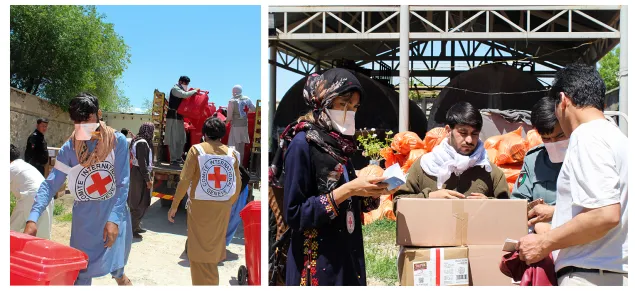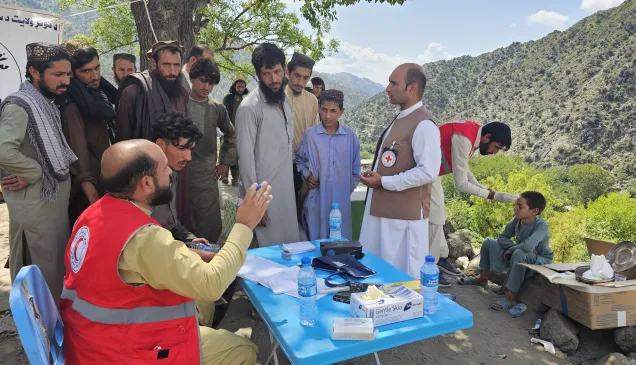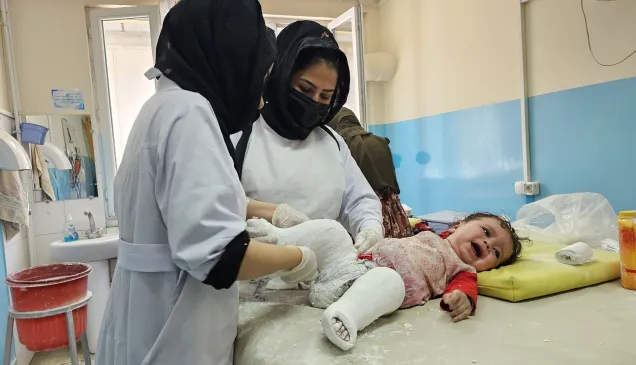COVID-19: Achieving effective pandemic containment in Afghanistan’s largest prison
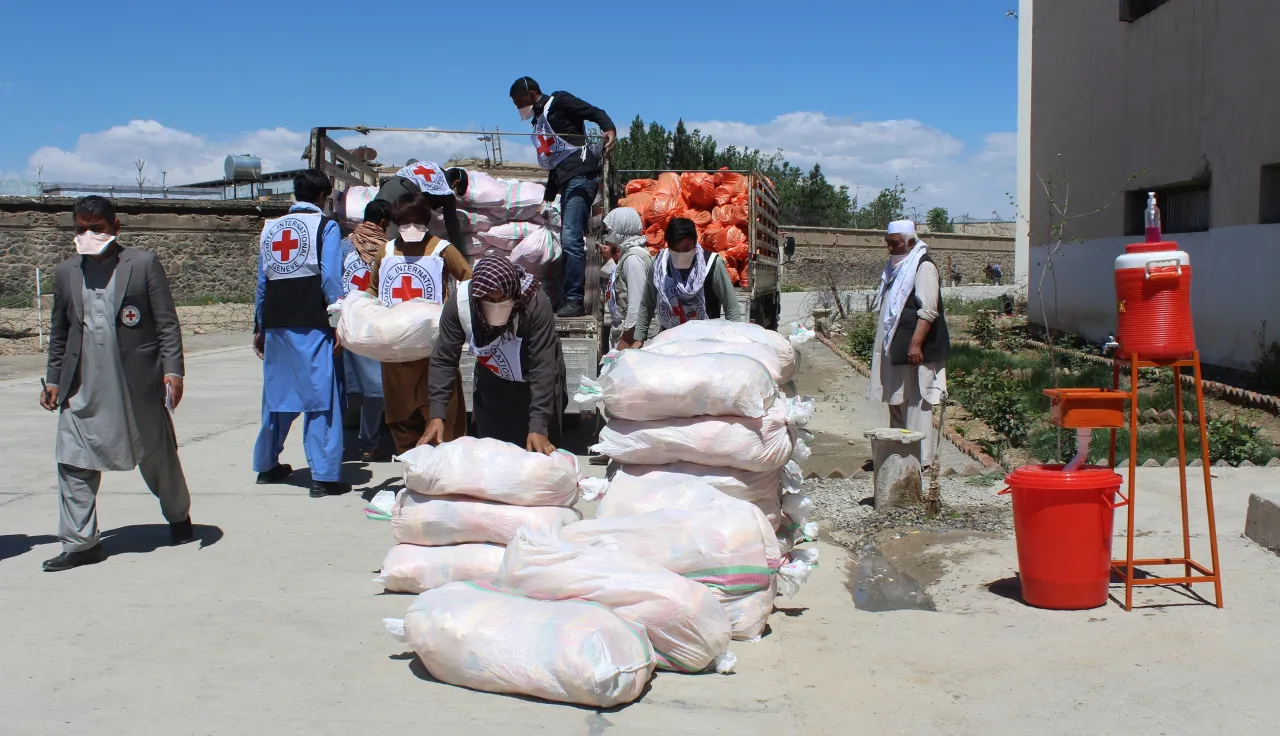
While the world continues to grapple with the seismic effects of the COVID-19 pandemic, one thing is for certain – the virus does not discriminate. While the virus affects us all, it affects certain people more than the others. For those detained in prisons, sanitation and healthcare remain an important issue.
To date, it has been reported that over 100 cases of COVID-19 have been detected in places of detention in Afghanistan. The small, yet significant number, points to the alarming sign of the risks detention facilities might face in the coming days if preventive measures are not in place.
The Pul-e-Charkhi Central Prison, in Afghanistan, holds over 9,000 inmates making it the largest prison in the country as well as the most vulnerable.
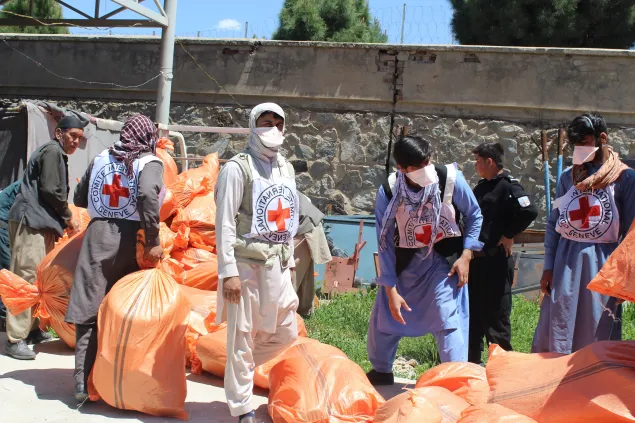
To ensure that detainees can follow proper hygiene practices and that the spread of infections is contained, the ICRC donated large quantities of hygiene items as part of a COVID-19 dedicated response, amid regular distributions. This included soap, bleach, sprayers and chlorine, as well as personal protective equipment (PPE) for cleaners, such as rubber boots and gloves.
Additionally, hand washing stations, with soap, have been installed for detainees and prison staff. Kits have been provided to the authorities to ensure the safe and dignified management of the dead.
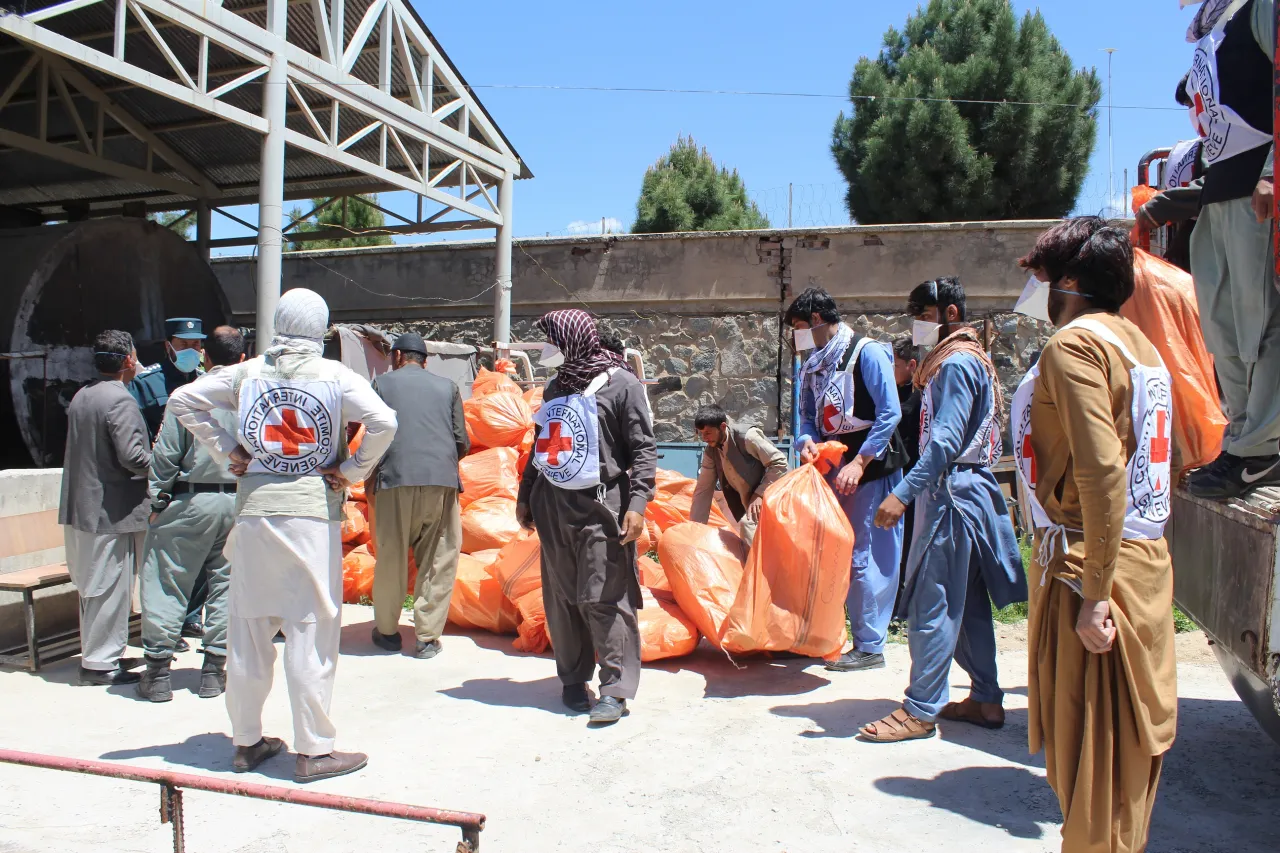
The ICRC's assistance to the Pul-e-Charkhi prison includes improving healthcare facilities, upgrading COVID-19 detection procedures and contributing to the setup of isolation areas for COVID-19 positive detainees. We also provided top-to-bottom PPE to prison staff – consisting of gloves, face masks, gowns, aprons, protective glasses, caps, shoe covers, soap and disinfectant – in addition to infrared thermometers.
In other parts of the country, Bagram prison in Parwan, Sarpoza prison in Kandahar, and Herat prison, have also been provided with the same equipment.
Besides this, the ICRC offered financial incentives for health staff recruited for the COVID-19 response across several prisons, including female staff for screening points established at the main entry point of Pul-e-Charkhi's complex. These endeavors allow medical staff to adequately attend to detainees, and to detect and contain the spread of the disease more effectively.
Apart from material and financial support at the level of detention facilities, the ICRC provided technical advice to Pul-e-Charkhi and other prisons' authorities throughout the country on how to implement the COVID-19 Emergency Response Plan adopted by the Ministry of Public Health and the General Directorate of Prisons and Detention Centers.
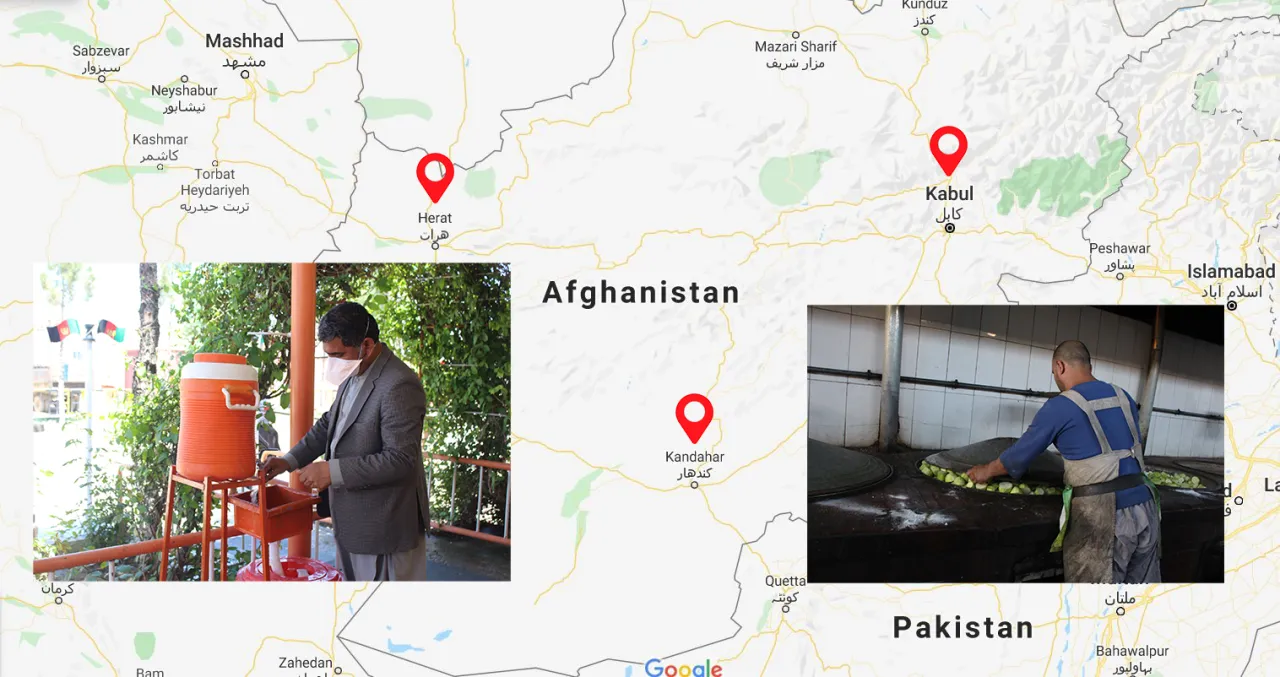
But the ICRC's support goes beyond the walls of the prisons. It also involves mobilization of various ministries and entities, and participation in the central COVID-19 Emergency Response Committee in places of detention to ensure that the adequate response measures are implemented.
Similarly, dialogue and engagement with state, non-state and international authorities are ongoing to ensure safeguards for vulnerable populations in detention. This includes recommendations for immediate decongestion measures such as early or temporary release of certain categories of detainees. Additionally, numerous policy recommendations on prevention and management of COVID-19 are to be implemented in places of detention.
Dialogue and engagement with state, non-state and international authorities are ongoing to ensure safeguards for vulnerable populations in detention.
In this regard, the ICRC provided some IT equipment and stationary to Pul-e-Charkhi prison's registry, which helps the authorities with the current information management system and allows for faster processing of the detainees' documentation in the release process engaged pursuant to the three recent presidential decrees.
While abiding by the restrictions on face-to-face interactions imposed by the COVID-19 preventive measures, the ICRC adapted its working modalities to ensure that activities essential to detainees' wellbeing are not disrupted during this period of increased vulnerability.
Thus, it strove to maintain the continuity of its engagement with detainees' representatives and authorities regarding the assessment of general conditions of detention, handling of detainees and any issues that may occur, as well as the submission of recommendations aiming at improving the situation. The ICRC also managed to preserve the link between the most vulnerable detainees and their families through the distribution of personal messages.
